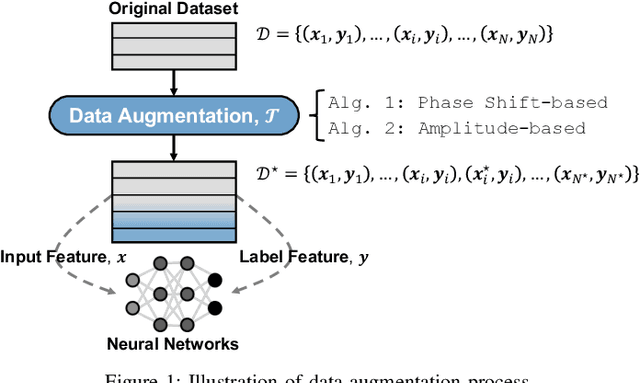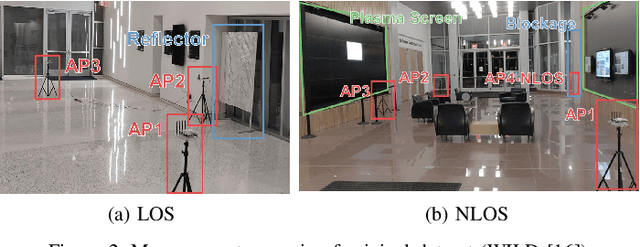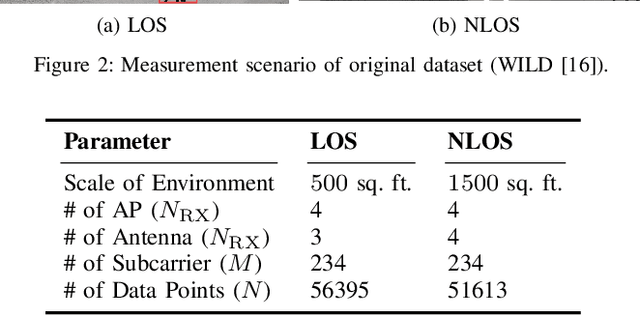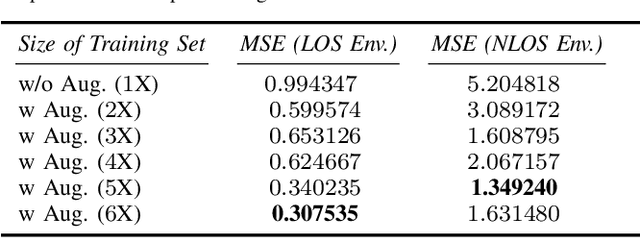Simple and Effective Augmentation Methods for CSI Based Indoor Localization
Paper and Code
Nov 19, 2022



Indoor localization is a challenging task. There is no robust and almost-universal approach, in contrast to outdoor environments where GPS is dominant. Recently, machine learning (ML) has emerged as the most promising approach for achieving accurate indoor localization, yet its main challenge is the requirement for large datasets to train the neural networks. The data collection procedure is costly and laborious as the procedure requires extensive measurements and labeling processes for different indoor environments. The situation can be improved by Data Augmentation (DA), which is a general framework to enlarge the datasets for ML, making ML systems more robust and increases their generalization capabilities. In this paper, we propose two simple yet surprisingly effective DA algorithms for channel state information (CSI) based indoor localization motivated by physical considerations. We show that the required number of measurements for a given accuracy requirement may be decreased by an order of magnitude. Specifically, we demonstrate the algorithms' effectiveness by experiments conducted with a measured indoor WiFi measurement dataset: as little as 10% of the original dataset size is enough to get the same performance of the original dataset. We also showed that, if we further augment the dataset with proposed techniques we get better test accuracy more than three-fold.
 Add to Chrome
Add to Chrome Add to Firefox
Add to Firefox Add to Edge
Add to Edge